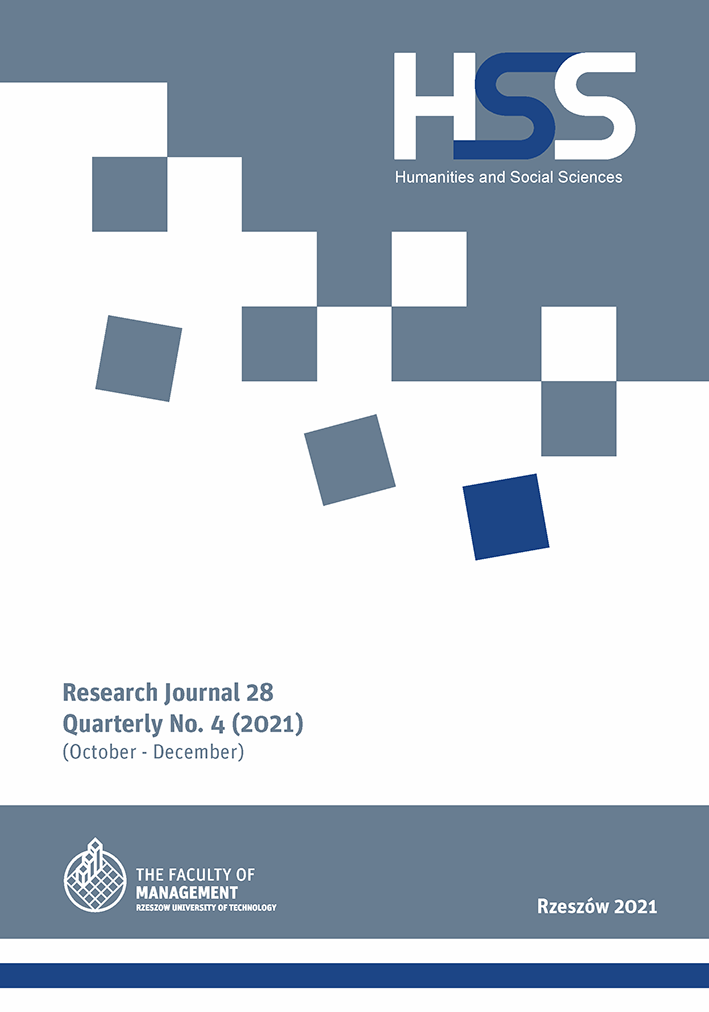Abstrakt
This paper’s main goal was to assess, based on the analyses carried out, if Osama bin Laden’s wives enjoyed a special status within Al-Qaeda as a result of their husband’s rank and status. In other words, this paper examined if it is justifiable to infer the occurrence of exceptionalism or a detachment from religiously and socially predefined gender limitations, thanks to being married to the leader. The main methods used to examine this hypothesis were historical and content analysis, which provided verified premises, and the deductive method, which allowed for the construction of a sound argument that addresses the paper’s research question. This paper’s conclusion is not unequivocal.
Bibliografia
Alexander, Y., Swetnam, M. S. (2001). Usama bin Laden’s al Qaida: Profile of a Terrorist Network. Transnational Publishers, Inc.
Al-Qaeda (2004). Declaration of Jihad (Holy War) Against the Country’s Tyrants Military Series [In:] Post, J. M., eds., Military Studies in the Jihad against the Tyrants: The Al-Qaeda Training Manual (p. 13–16). USAF Counterproliferation Center.
Bani, L. M., Pate, H. A. (2015). The Role of Spouses under Islamic Family Law. „International Affairs and Global Strategy“, 37. Access on the internet: https://core.ac.uk/download/pdf/234670779.pdf
Bin Laden, O. (2007). Declaration of War Against the Americans Occupying the Land of the Two Holy Places: Expel the Polytheists from the Arabian Peninsula (August 23, 1996) [In:] Lawrence, B., Karim, A., eds., On Violence (p. 540–545). New York: Duke University Press. DOI: 10.1515/9780822390169-069.
Britannica, T. Editors of Encyclopaedia (2019, February 6). Al-Qaeda. Encyclopedia Britannica. Access on the internet: https://www.britannica.com/topic/al-Qaeda
Ducret, D. (2012). Femmes de dictateur 2, Perrin.
Lundborg Regnér, A. (2017). A Greater Evil – the Emerging Role of Women in Al Qaeda: A Comparative Study of Al Qaeda Central and al Qaeda in the Arabian Peninsula on the Employment of Women [Bachelor thesis, Uppsala University]. Access on the internet: https://www.diva-portal.org/smash/get/diva2:1109810/FULLTEXT01.pdf
McGirk, T. (2011). Big Love in Abbottabad: How Osama bin Laden Kept Three Wives Under One Roof. “Time”, May 12. Access on the internet: http://content.time.com/time/world/article/0,8599,2070880,00.html
Mielnik, D. (2019). Działalność bliskowschodnich organizacji terrorystycznych w kontekście bezpieczeństwa europejskiego: Wybrane problemy [In:] Kośmider, T., Strzelec, M., eds., Rozważania nad problematyką bezpieczeństwa publicznego: Przeciwdziałanie zagrożeniom Rola Służb (p. 13–34). Wydawnictwo Instytutu Wymiaru Sprawiedliwości.
Quran (2021). Quran.com. https://quran.com/
Sjoberg. L. (2013). The Terror of Sex: Significations of Al-Qaeda Wives. “Journal of Postcolonial Cultures and Societies”, 4(2). Access on the internet: https://pure.royalholloway.ac.uk/portal/files/36316055/19_Sjoberg_The_Terror_of_Sex.pdf
Spencer, A. N. (2016). The Hidden Face of Terrorism: An Analysis of the Women in Islamic State. “Journal of Strategic Security”, 9(3). DOI: 10.5038/1944-0472.9.3.1549.
von Knop, K. (2008). The Multifaceted Roles of Women Inside Al-Qaeda. “Journal of National Defense Studies”, 6.
Zubrzycki, W. (2015). Terroryzm jako zagrożenie dzisiejszego i przyszłego bezpieczeństwa [In:] Nowakowska-Krystman, A., Zubrzycki, W., Mazur-Cieślik, E., Daniluk, P., Terroryzm w ujęciu analiz strategicznych (p. 59–77). Warszawa: Difin.


